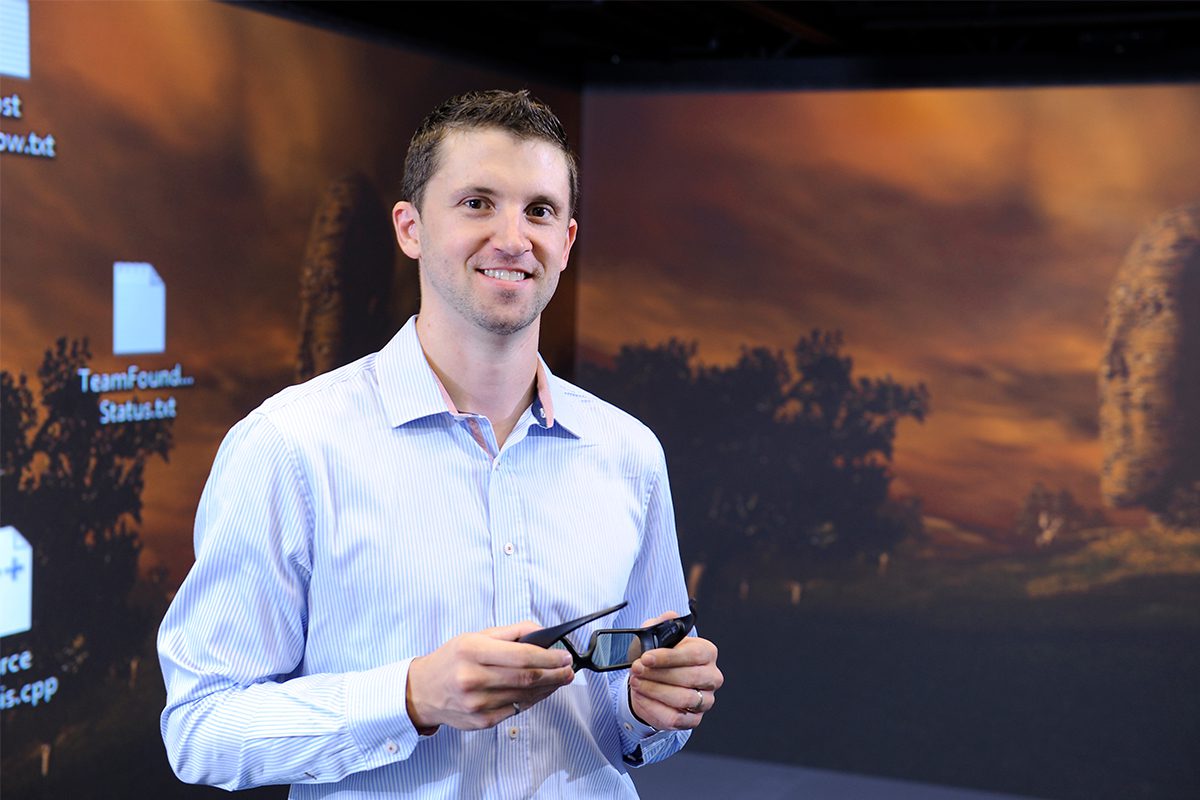Skift Take
Jean-Francois Lalonde, an associate professor at Université Laval in Québec City, studies computer vision and artificial intelligence. He’s also playing a leading role in attracting and hosting events within Canada’s technology sector.
At our most recent Skift Global Forum event, we discussed the role leading innovators in advanced sectors can play in driving the future of business events, long-term economic growth, and resilient communities. By leveraging intellectual capital across its priority economic sectors, Canada is positioning itself as a global leader in research and innovation.
Earlier this year, Vikram Misra, a professor in microbiology at the University of Saskatchewan, shared how Saskatoon attracted experts in the life sciences field for the One Health Congress. Then, Cathy Hogan, executive director of OceansAdvance, provided insight into how Newfoundland and Labrador brought industry and academia together at the IEEE Marine Technology Society’s North American Oceans event to exchange ideas, meet local experts, and learn about the region’s ocean technology infrastructure.
For this third and final installment in our series with Destination Canada Business Events, SkiftX spoke with Jean-Francois Lalonde, an associate professor of electrical and computer engineering at Université Laval in Québec City. Lalonde shared how events such as the International Conference on 3D Vision, hosted by Québec City in 2019, can help incentivize organizations and professionals within the technology sector to consider the city as an attractive destination.
“Not only do we have the beautiful backdrop of a 400-year-old town, but what sets us apart in the field of 3D computer vision is really a thriving ecosystem,” Lalonde said. “We have a very strong research lab and research facilities, with researchers that not only work in 3D computer vision, but also optics, photonics, and artificial intelligence, which has received a lot of attention.”
Lalonde describes computer vision as “a field of artificial intelligence in which we’re trying to recreate the capacity that humans have in understanding the world through our eyes. We’re trying to give that capacity to computers and robots and automated systems through algorithms.” Over the years, computer vision has moved from the experimental fringe to the heart of many industries, from transportation (autonomous driving) to real estate (virtual tours) to city planning (visualizations of proposed infrastructure improvements).
“I was involved in the planning of the 3D Vision Conference last year,” Lalonde said, “and my role was essentially being the link between all of the relevant people, including city and government officials, the local and international scientific community, and industry leaders. We reached out locally to at least five or six companies in the city, and that helped us expand to the Montréal region, to Canada and internationally. Big companies like Facebook, Google, Autodesk, and Huawei contributed financially.”
Conference attendees were able to experience Université Laval’s world-class facilities, which include the Computer Vision and Systems Lab, which has had a major impact on the local business community, and the Center for Optics and Photonics, which does cutting-edge research in communications and fiber optics.
“It brings together all kinds of people, from physicists to electrical and computer engineers to people in advanced optics,” Lalonde said. “Bringing people together can happen virtually as well, but I can’t wait for the next event that we can organize here. There was a mix of pride in having all these people come to our home, not just to show them the region, but also to create opportunities for our local businesses, to expand their horizons and maybe talk to people that they wouldn’t have talked with. Personally, I have at least five or six collaborations going on now that started at these kinds of events, so the value is almost incalculable.”
GET TO KNOW JEAN-FRANCOIS LALONDE
- Lalonde lived in the U.S. for about 10 years, while getting his Masters and PhD at Carnegie Mellon in Pittsburgh. He’s been teaching and conducting research at Université Laval in Québec City for seven years.
- He thinks you’ll love Québec City: “Come to visit and you’ll get a feel for a more laid-back European way of life, with a beautiful backdrop and lots of culture, history, and good food. I love the North American feel and European feel all in one package.”
- He doesn’t believe that the singularity, the hypothetical point when artificial intelligence becomes uncontrollable, is going to happen anytime soon: “Oh my God, yeah, we’re so far from this. There’s a lot of sensationalism in the media about AI, and I always have a laugh at it. Those movies can be a lot of fun but also kind of scary. But I think there’s good in that discussion because it emphasizes the importance of responsible AI and responsible research.”
- But he does think technology can improve our Zoom interview: “Maybe we can make these social interactions more natural, through the use of virtual avatars that deliver a better representation of myself and you, and perhaps we can even exchange things in this virtual world, and feel that we’re in the same room together.”
Watch our Skift Global Forum session on Tapping Into Local Innovation to Drive Business Events and Resilient Communities to learn more about how regional experts like Jean-Francois Lalonde bring this strategy to life.
For more information about Destination Canada’s work within priority economic sectors and how they can benefit business events, visit Destination Canada Business Events.
This content was created collaboratively by Destination Canada Business Events and Skift’s branded content studio, SkiftX.
Have a confidential tip for Skift? Get in touch
Tags: Destination Canada, Destination Canada 2020, destination marketing, destination marketing organizations, innovation, meetings and events, SkiftX Showcase: Destinations, SkiftX Showcase: Meetings and Events, travel recovery
